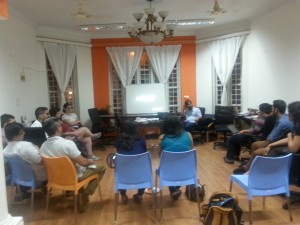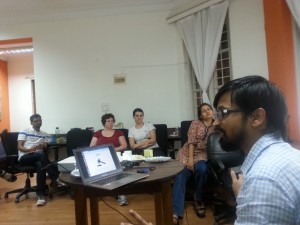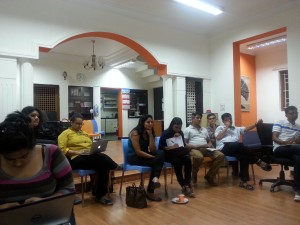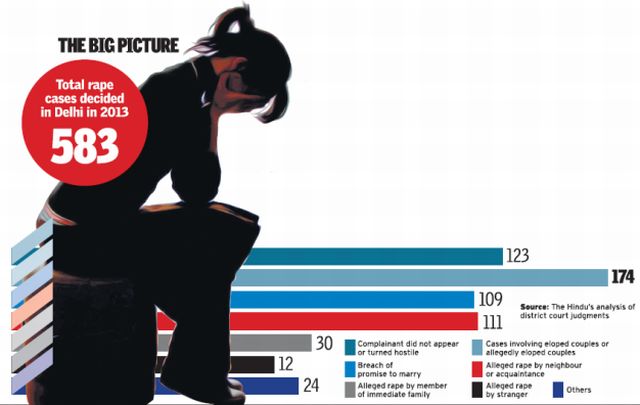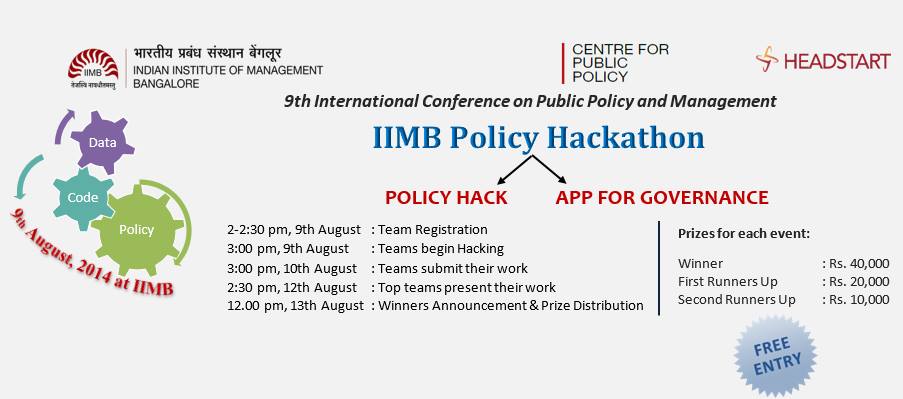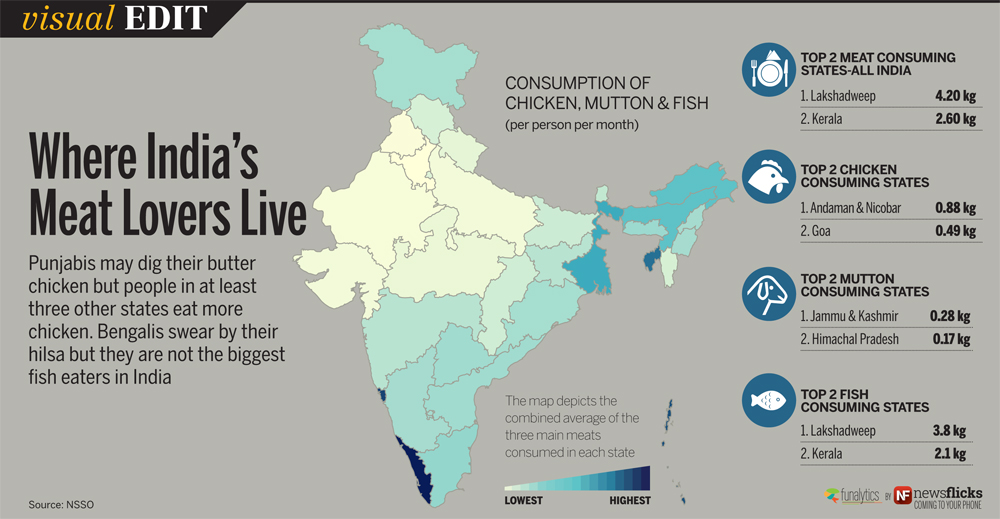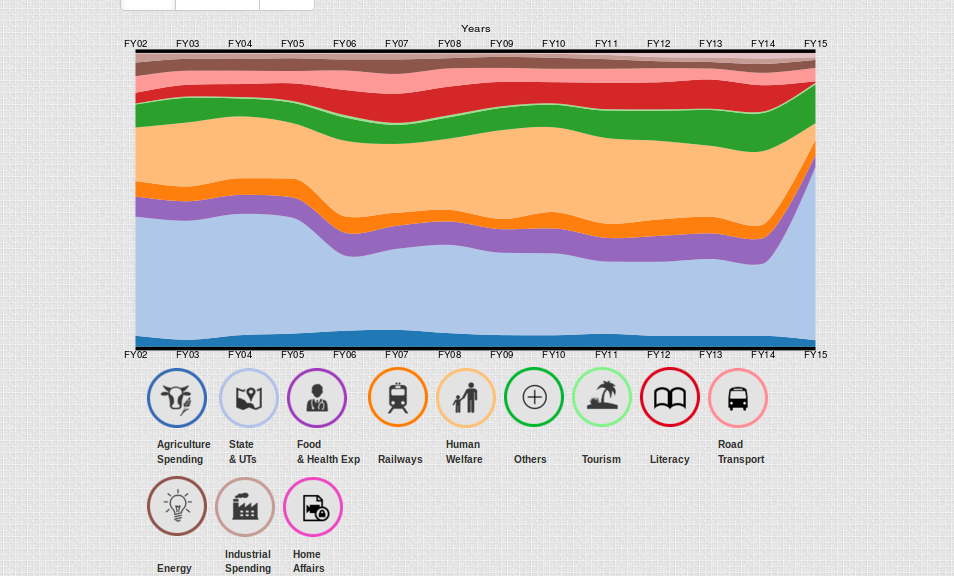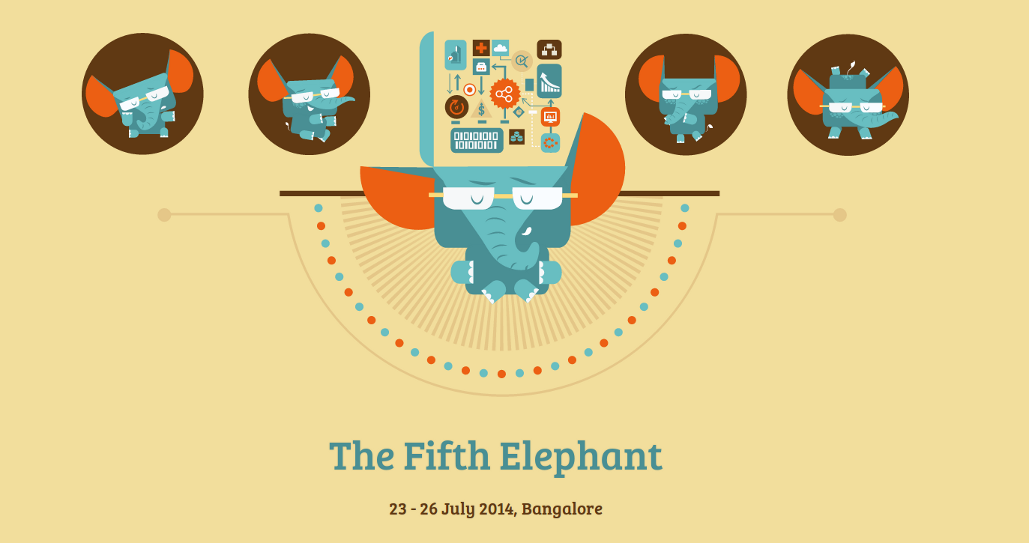After a long hiatus, we had a DataMeet-Up in Delhi on Friday, July 31. Thanks to the Centre for Internet and Society for hosting us.
The meet-up had a small but very productive mix of old and new faces. Here is the list of participants:
* Deeptanshu
* Guneet Narula, Sputznik
* Isha Parihar, Akvo Foundation
* Namrata Mehta, Center for Knowledge Societies
* Praachi Misra, Competition Commission of India
* Rajat Das, Contify
* Riju / Sumandro Chattapadhyay, ajantriks.net
* Rohith Jyotish, Centre for Budget and Governance Accountability
* Shobha SV, Breakthrough
We started with a round of ‘what is DataMeet’ and moved into ‘what should DataMeet do in Delhi.’ Here are the suggestions that came up in the meeting:
1. Data Liberartion Strategy: We can work towards creating a strategy and workflow to undertake data liberation tasks. These tasks can focus on two types of data – (1) data that is not available in public yet and needs to be brought out by requesting the authorities concerned and/or speaking to them about it, and (2) data that is available in public but not in an open / directly-usable / machine-readable manner. We of course have done some work towards especially the second type of data, such as with MP constituency boundaries shapefile and with scraping of weather data. It will be useful to prepare and document strategies for such tasks.
Deeptanshu suggested that an important available-but-not-machine-readable data that we can work with in near future is the proceedings of the parliament published in the parliament’s website. We can possibly speak to ADR and PRS if they have done any work towards converting that data to machine-readable formats.
2. Learning and Sharing: We felt that DataMeet should undertake pedagogic functions – from internal training / sharing sessions within the DataMeet members, to public workshops for data and visualisation tools and techniques, to online documentation of the same. It seems that the existing (regular or otherwise) members of Delhi chapter of DataMeet is a good mix of those who look forward to pick up data / visualisation / programming skills and those who can offer to teach that. Often the latter group looks forward to learn about available datasets, ways of interpreting government data (from NSSO to budget sheets), and legal considerations associated with data — all of this the former group (who wants to learn data / visuaisation / programming skills) can offer to help with. Hence it make a lot of sense to convert our monthly meet-ups into short learning and sharing sessions.
Further, we can document the learning and sharing taking place in the meet-ups and put it up as online references. This will slowly create a knowledge base, with contributions from across the city chapters. There was a short discussion if we should use a Wiki to create such a knowledge base or a WordPress blog. The programming group is more comfortable with the former, while the non-programming group is more comfortable with the latter. With WordPress providing detailed ‘edit history,’ I guess it is alright to use WordPress for the sake of general ease of use.
Let us start the documentation over the next 3-4 meet-ups and think of what is the best way to upload it – either as a section of DataMeet blog / wiki / github or a sub-site.
3. DataMeet-Ups as Tiny Hackathons: It was suggested that on each DataMeet-Up, we take up a particular task — either of data liberation or of data visualisation — and focus on a particular topic and dataset, and spend time together working on the task. This will include thinking about the task, creating a workflow, sharing the skills concerned, and doing the task. And finally we showcase the work done through the DataMeet blog and elsewhere.
Further, this will also produce visible evidence of the government data made available at the portal being actually used, and thus to raise awareness of the available data and its demand.
4. Legal and Policy Discussion: It was briefly mentioned that some members of the group often face questions related to legal and policy context of open government data, and also regarding opening of non-governmental data. We should look for resource persons and organisations to advise on such issues. The DataMeet mailing list can also function as a primary discussion space for these topics. However, the mailing list can be too public a space for certain discussions.
Open Data Camp Delhi 2014
We had an initial chat about organising the Open Data Camp in Delhi in November 2014. The date and venue discussion is pending. We will take that up in the next DataMeet-Up.
The two primary objectives of the Open Data Camp Delhi are (1) a social and networking event for open data people (who are talking about and/or working with open data ) in Delhi, and (2) learn about their interests and challenges and prepare the road plan for Delhi chapter of DataMeet. Clearly, the first objective is more community-facing, and the second one is DataMeet-facing.
Here is the draft agenda for the Open Data Camp Delhi:
09:30-10:00 Ice-Breaker
10:00-10:30 Open Data and DataMeet [What is open data? What is DataMeet? Why is DataMeet? Why is open data relevant?]
10:30-11:30 Lightning Talks #1 [6 talks of 8 minutes each]
11:30-12:00 Tea/Coffee
12:00-13:00 Lightning Talks #2 [6 talks of 8 minutes each]
13:00-14:00 Lunch
14:00-16:00 Open Data Matchmaking Session [We set up two boards at the beginning of the day. One for writing down what data project one has in mind and what skills are required, and the other for writing down what data skills one can offer. On the basis of this, people meet up during the matchmaking session and talk about their plans.]
16:00-17:00 Closing and Thanks followed by Tea/Coffee
17:00-18:00 DataMeet Roadmap Discussion [Open to anyone who wants to participate]
It was suggested that lightning talks should be chosen as a combination of directly selected (by organisers) and community selected (through a submission and voting mechanism) modes.
DataMeet-Up in August 2014
We planned the next Delhi DataMeet-Up to take place on Wednesday, August 27, afternoon, where we will work on visualising datasets related to budget 2014. Rohith from CBGA, and his colleagues, will help us select the datasets and interpret them.
The venue is yet to be decided. Possible options are Akvo, CKS, Sarai, and Youth Ki Awaaz. Maybe CBGA can host it too.
Further, this also works as a warm-up session towards the Hack the Budget event being organised by World Bank in September.
